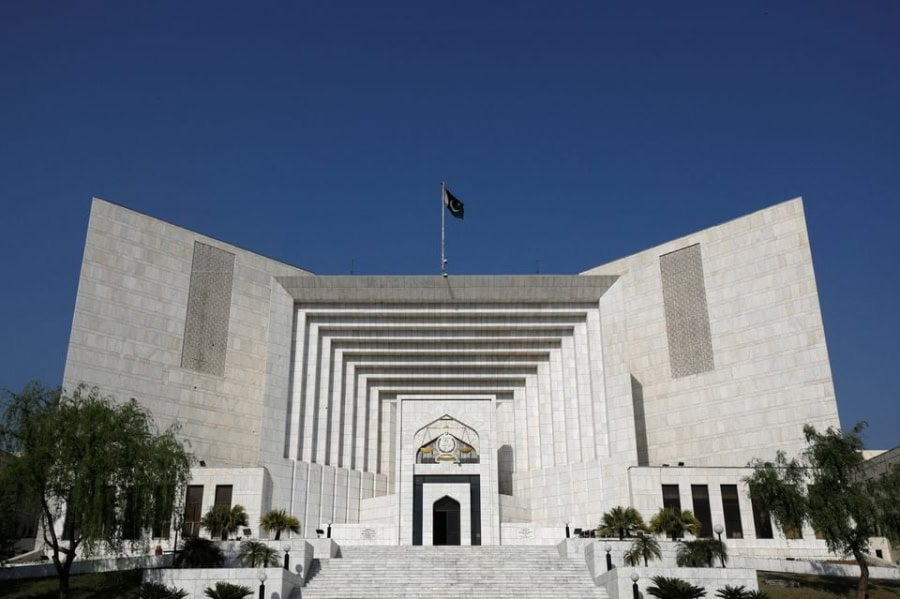ISLAMABAD – The Supreme Court of Pakistan on Tuesday observed that the current dispute involving the reserved seats stemmed from the error by the Election Commission of Pakistan.
The top court also observed that it is not its duty to correct the mistakes as the court applied constitution and law rather than to meet the demands of justice.
The observation comes during hearing of the case related to the reserved seats.
A SC 13-member bench led by Chief Justice of Pakistan Qazi Faez Isa was hearing the case.
The lawyers from the Sunni Ittehad Council, the Election Commission of Pakistan and the Attorney General were present there before the full court.
Attorney General Mansoor Awan argued that there are records regarding reserved seats from 2002 and 2018. He explained that Article 51 was invoked for reserved seats in 2002 when there were 272 total seats, three elections were postponed and 13 independent candidates were elected, of which 9 joined political parties.
Consequently, the formula for reserved seats was applied to 256 seats.
The Attorney General for Pakistan also argued that in the 2002 elections, 20% of the elected candidates from Balochistan were independents but they were not included in the determination of reserved seats. For the first time, Article 51 was used to determine reserved seats in the National Assembly in 2002.
The purpose of Article 51 in assemblies is to provide representation for women and minorities, and any independent candidate joining a political party is considered a member of that party.
Justice Athar Minallah remarked that Article 51 is a right of a political party, questioning whether the Election Commission’s exclusion of a political party is a significant issue and whether it is the Supreme Court’s responsibility to address legal violations since voters had voted for a political party.
Justice Muneeb Akhtar observed that an unusual situation arises if there are too many independent candidates. He questioned how so many independents emerged in the current scenario and whether the Election Commission, in light of the Supreme Court’s decision, created such a large number of independents. He emphasized that the current dispute arose due to the Election Commission’s errors and questioned whether a legal option should be adopted to rectify the mistake.
Chief Justice Qazi Faez Isa remarked, asking if any party had claimed that seats would remain vacant. He noted that each party demanded the seats for themselves, to which the Attorney General responded that Faisal Siddiqui had said if the Sunni Ittehad Council does not get the seats, they should remain vacant.
Justice Yahya Afridi asked if, according to the Attorney General, the Sunni Ittehad Council has become a parliamentary party after winning the by-elections. The Attorney General confirmed that if the Sunni Ittehad Council wins the by-elections, it can become a parliamentary party. Justice Ayesha Malik asked how the Election Commission could consider the Sunni Ittehad Council a parliamentary party if it does not recognize it as a political party. Justice Muneeb Akhtar added that independent candidates joining a political party are considered a parliamentary party.
Chief Justice Isa stated that the court applies the constitution and law rather than seeking to fulfill the demands of justice. He pointed out that all decisions under the doctrine of necessity mention the demands of justice, and when there is no substantial evidence, justice is interpreted subjectively.
Justice Athar Minallah questioned whether the court should endorse a severe violation of the constitution and if it is possible to ignore the ‘elephant in the room.’ He emphasized that a constitutional institution had made an unconstitutional interpretation and asked whether the Supreme Court should endorse it.
CJP Isa reiterated that the Supreme Court’s decisions are based on justice and have followed the constitution. He humbly remarked that while some judges may be wise, he does not claim to be so, and urged that Pakistan should be allowed to follow the path of the constitution.
The court then adjourned the case’s hearing until July 9.










